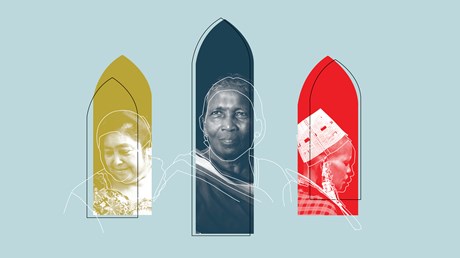Christianity has been a multicultural, multiracial, multiethnic movement since its inception.

I met Senganglu Thaimei (Sengmei to her friends) in New Delhi, India. Born to the Rongmei tribe in the extreme northeast of India, she teaches English literature at Delhi University and writes stories reimaging the tales of her tribe through the eyes of marginalized women. Sengmei is keen to preserve tribal culture, and preservation is necessary. The Naga tribes were reached by Western missionaries in the 19th century. Christianization brought westernization. Today, over 80 percent of the Rongmei are Christian, and tribal traditions are declining.
For many, this would be one evidence among many that Christianity is a white, Western religion forcibly exported to other cultures and leaving a trail of cultural destruction in its wake. But the rest of Sengmei’s story complicates the picture. Raised in a nonreligious home, she started following Jesus as a teenager through the witness of a Rongmei friend. Today, she is a passionate Christian and her husband (from a kindred tribe) pastors a multiethnic church.
What’s more, as we discussed the history of her tribe, Sengmei warned me not to give Western missionaries too much credit. Westerners saw only a handful of Naga converts, who then effectively evangelized their tribes. And while Sengmei deplores the ways Western culture was illegitimately packaged with Christianity, she is equally clear about the positive effects of Christianization, especially for tribal women.
I visited India to meet with 12 Christian academics. Ten came from Naga tribes. Between them, they spoke seven indigenous languages. But they spoke with one voice when it came to Christianity. Cultural anthropologist and Naga tribe member Kanato Chophi stated it most starkly: “We must abandon this absurd ...
from Christianity Today Magazine https://ift.tt/2pfUUWT
No comments:
Post a Comment